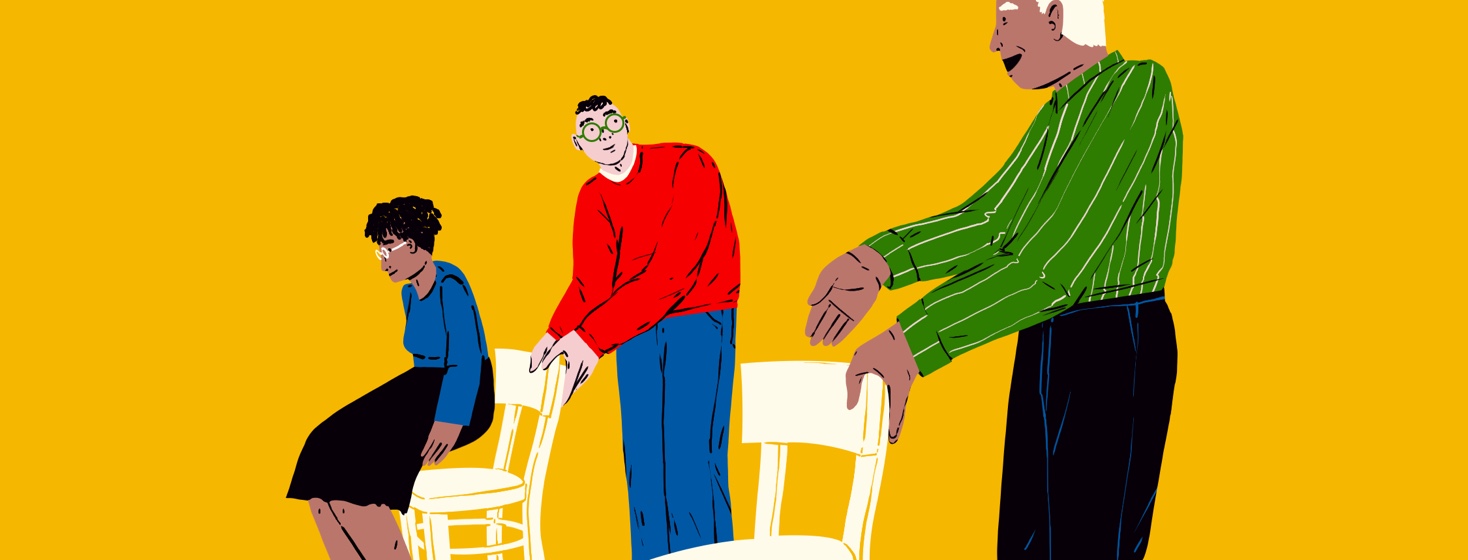Loved Ones Who Support Us Need Support, Too!
Since you have been visually impaired, have you ever wondered whether your nearest and dearest have been paying any attention AT ALL?
My husband must have forgotten that I'm visually impaired
I have to get up obscenely early tomorrow to get transportation that will get me very unfashionably early (like 45 minutes to an hour) to a rendezvous site to go do an activity with friends. I was complaining about having to sit there for so long. My husband’s comment was “take a book to read.”
Take a BOOK to READ? A once voracious reader, I have not read for pleasure in over four years. The reading I do is strictly with magnification. I have not had the luxury of grabbing a book and reading anywhere but my desk in years. Makes me wonder where exactly he has been for the past four years.
Was it a joke? Or was he serious?
Granted, it was probably a knee-jerk response based on a whole lot of experience with my actually taking a book and hanging out while I wait somewhere but it could have been a purposefully snarky response. Either way, it did get me wondering about vision loss and family members. I am a motor-in-my rear type while my husband is much more laid back. Catering to me and my on-the-go style can be aggravating.
Don't loved ones need support as well?
All of the literature says we should keep up our old ways as long as possible in order to maintain mental and physical health. It says we need lots of support from friends and family as well as the community and community services. Got that, but what about the needs and reactions of family?
The family dynamic changes with vision loss
Back in 2009 Bambara, Wadley et al published Family Functioning and Low Vision: A Systems Review. They comment that having a family member with vision loss can be stressful, particularly as the family struggles to balance their own needs with the needs of the person with low vision. All of the previous “rules” in the family have to change so as to accommodate the person with low vision. People must function in new roles and may even start to identify themselves in new ways. Sometimes caregiving family members may start to ask “What about me?”1
What about negative or no support?
Bambara, Wadley, et al talk about instrumental and emotional assistance but tell also about negative support and no support. Because family members give up time for other things, as well as experiencing a lack of reciprocity and an unbalanced exchange of care and concern, negative exchanges can occur. Impatient, snarky? Yep. That is what they are referring to as negative support. And no support? Just what it sounds like.1
The article goes on to talk about the family system problems that can come from negative and no support. Divorce and everyone getting depressed were the big ones mentioned.1
How can we help our vision loss caregivers?
Ok. So what do they suggest to avoid such a mess? They first suggest we find a good vision rehabilitation specialist and get some training. They also suggest psychotherapy for all involved. Great ideas but I can just hear caregivers asking when in their days do we plan for them to go to therapy.
The Need's Pyramid for Caregivers
Dan Roberts and Living Well with Low Vision have a publication entitled Caring for the Visually Impaired. In that they include Stephen Wiet’s Needs Pyramid for Caregivers. The pyramid starts at the base with “Help me make better decisions” and a suggestion to take full advantage of all resources available, including vision rehabilitation and psychotherapy.2
The pyramid then goes up to “Simplify my life” and “Peace of mind." Peace of mind in their thinking is being able to shift focus to needs other than those of caregiving without feeling there is going to be a disaster. The ultimate, caregiver goal at the top of the pyramid is simple: time for myself.
What can we, the visually impaired, do for them?
And what does this all mean for us, the visually impaired? Maybe be willing to learn new skills that will allow for more independence, accept different caregivers, be understanding when our caregivers need a break? Maybe?
…Several days have passed since I started this page. Today I arranged for a ride with an acquaintance. My husband could use some time for himself.

Join the conversation